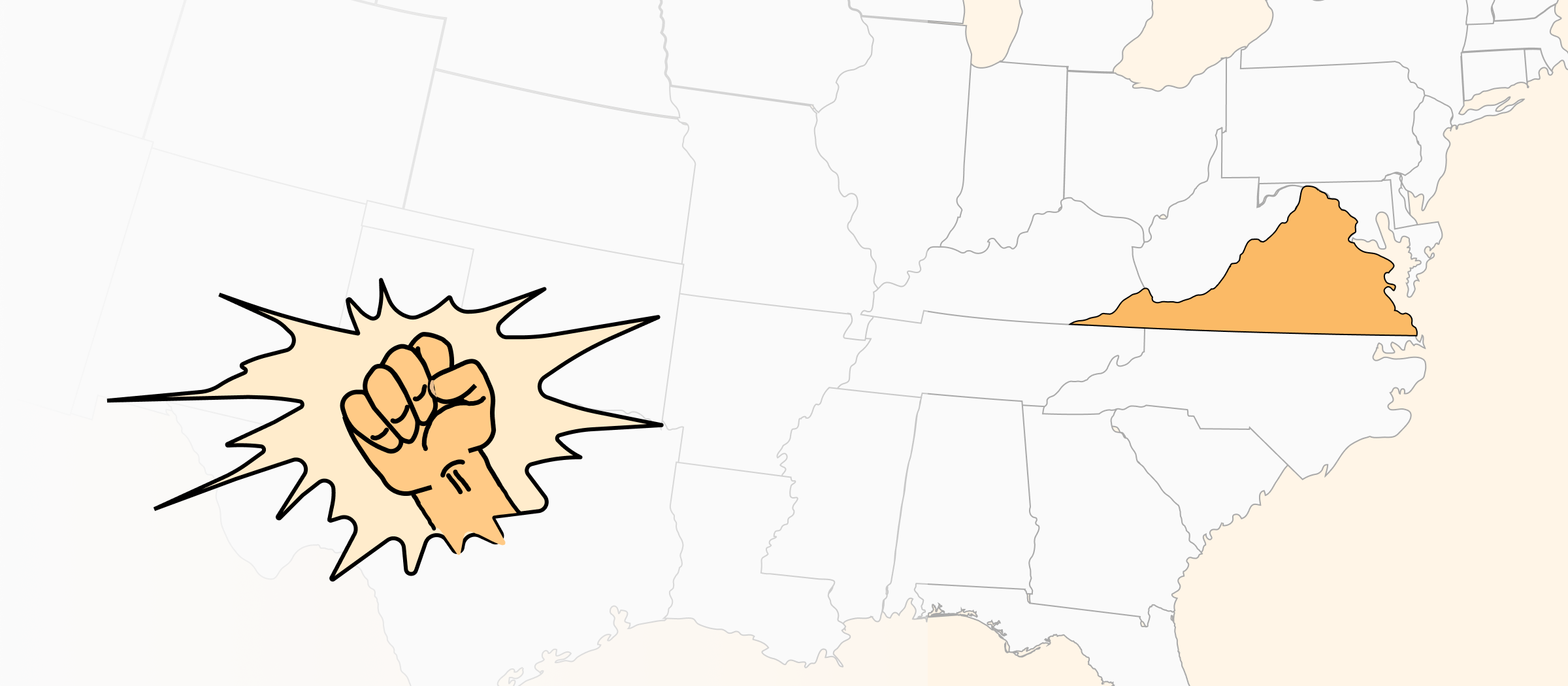| Tenant Protected Actions |
|
| Landlord Retaliatory Actions |
|
| Penalties for Retaliation |
|
When Is It Illegal for Landlords to Retaliate in Virginia?
It’s illegal for Virginia landlords to retaliate with raised rent, reduced services, or threatened eviction against tenants who have taken one of the following protected actions:
- Complaining to the government about health and safety issues on the property.
- Complaining to the landlord about failure to comply with legal requirements.
- Participating in a tenant organization.
- Testifying in a court case against the landlord.
The law allows an exception when the landlord has good-faith reason for the alleged retaliatory action. For example, a landlord who raises rent reasonably according to local market values isn’t retaliating. It’s the tenant’s burden of proof to establish the landlord’s retaliatory intention.
What Can Tenants Do in Response in Virginia?
Virginia tenants can respond to landlord retaliation by suing for quiet enjoyment of the property. A successful retaliation claim is also a defense against eviction. In either case, the tenant can recover monetary damages from the landlord.
Sources
- 1 Va. Code Ann. § 55.1-1258.A (2023)
-
“Except as provided in this section or as otherwise provided by law, a landlord may not retaliate by increasing rent or decreasing services or by bringing or threatening to bring an action for possession or by causing a termination of the rental agreement pursuant to § 55.1-1253 [end of a periodic tenancy] or 55.1-1410 [nonresidential property, or change in use of multifamily building] after he has knowledge that (i) the tenant has complained to a governmental agency charged with responsibility for enforcement of a building or housing code of a violation applicable to the premises materially affecting health or safety, (ii) the tenant has made a complaint to or filed an action against the landlord for a violation of any provision of this chapter, (iii) the tenant has organized or become a member of a tenant’s organization, or (iv) the tenant has testified in a court proceeding against the landlord. However, the provisions of this subsection shall not be construed to prevent the landlord from increasing rent to that which is charged for similar market rentals nor decreasing services that apply equally to all tenants.”
Source Link - 2 Va. Code Ann. § 55.1-1258.B (2023)
-
“If the landlord acts in violation of this section, the tenant is entitled to the applicable remedies provided for in this chapter, including recovery of actual damages, and may assert such retaliation as a defense in any action against him for possession. The burden of proving retaliatory intent shall be on the tenant.”
Source Link - 3 Va. Code Ann. § 55.1-1258.C (2023)
-
“Notwithstanding subsections A and B, a landlord may terminate the rental agreement pursuant to § 55.1-1253 [end of a periodic tenancy] or 55.1-1410 [nonresidential property, or change in use of multifamily building] and bring an action for possession if: 1. Violation of the applicable building or housing code was caused primarily by lack of reasonable care by the tenant, an authorized occupant, or a guest or invitee of the tenant; 2. The tenant is in default in rent; 3. Compliance with the applicable building or housing code requires alteration, remodeling, or demolition that would effectively deprive the tenant of use of the dwelling unit; or 4. The tenant is in default of a provision of the rental agreement materially affecting the health and safety of himself or others. The maintenance of the action provided in this section does not release the landlord from liability under § 55.1-1226 [return of security deposit].”
Source Link - 4 Va. Code Ann. § 55.1-1258.D (2023)
-
“The landlord may also terminate the rental agreement pursuant to § 55.1-1253 [end of a periodic tenancy] or 55.1-1410 [nonresidential property, or change in use of multifamily building] for any other reason not prohibited by law unless the court finds that the reason for the termination was retaliation.”
Source Link - 5 Va. Code Ann. § 55.1-1259 (2023)
-
“In addition to any other remedies in this chapter, any person adversely affected by an act or omission prohibited under this chapter may institute an action for injunction and damages against the person responsible for such act or omission in the circuit court in the county or city in which such act or omission occurred. If the court finds that the defendant was responsible for such act or omission, it shall enjoin the defendant from continuance of such practice, and in its discretion award the plaintiff damages as provided in this section.”
Source Link

